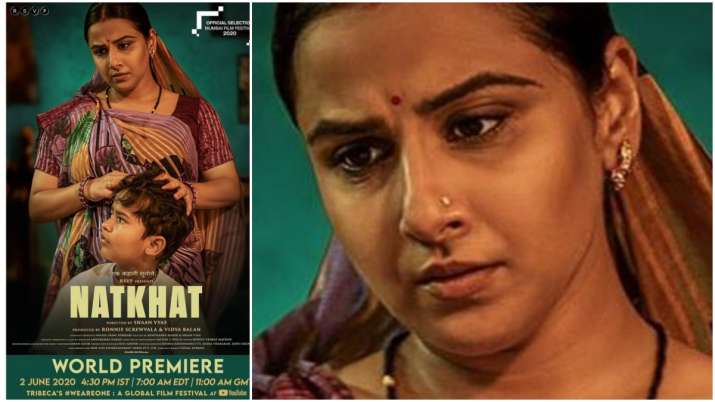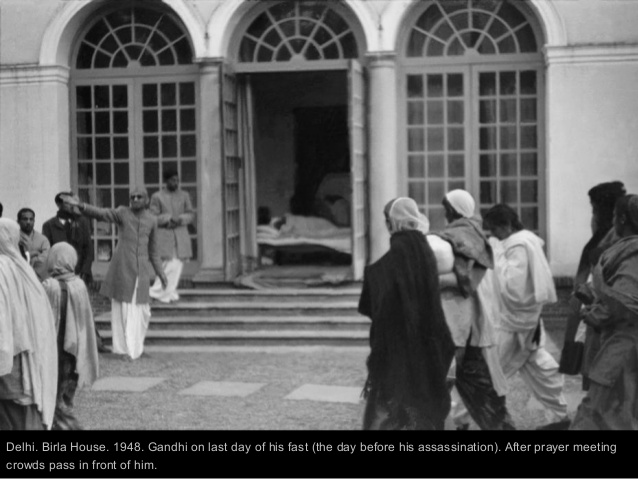In a recent statement, well-known actress and producer Vidya Balan said,“We cannot do away with centuries of patriarchy overnight.”
While she is right that we cannot put an end to age old patriarchy overnight and any long-term change would require patience and sustained effort, what surely can be done right now is the initiation of efforts towards generating awareness on the need of gender equity.
This is precisely what Vidya Balan’s upcoming debut short film Natkhat does.
The film revolves around the lives of a mother who educates her little son on the importance of gender equity and respect for women from an early age onwards. The theme that the film is based upon is not new but it has certainly gained an altogether new relevance at a time in which we find ourselves. The recent Bois Locker Room controversy has once again ignited the important but often ignored debate on cultivating the minds of young boys and making them sensitive to gender equality and educating them to become respectful towards women and their rights and dignity.
The film highlights and puts into bold letters, the importance of consent, when it come to any kind of relationship and reminds us of how a disregard for consent is against human dignity. The film works on a realistic tone and is richly embedded in India’s cultural fabric, its aspirations and patriarchal assumptions, its value-judgements and chronic misogyny and perhaps this is why the film is relatable and impactful.
There is no preachy pretence, there is an upfront admission to the fact that we are all indeed products of patriarchy and if we don’t reconsider our own value systems, we will go on turning our little boys into men with highly sexist, misogynist and patriarchal orientations to life. Children have young, impressionable minds that can be moulded in any way that we want and therefore it is extremely important for parents to rethink/redefine the socialisation and parenting techniques that they make use of.
Upbringing becomes an extremely important game changer and can make all the difference to the growing up years of the child.
The film makes an important social commentary by telling us that a child does not grow up in a void but the larger peer group, the media and the educational apparatus collectively leave an impact on the child’s mind and if there is no responsible parenting, it may bring about disastrous implications on the child’s growth and development.
Change begins at home, and this is the message that Natkhat seems to be reiterating time and again and it underlines that preaching is of no use.
Vidya Balan who plays the role of the responsible mother in the film, shows us how it is possible to systematically change the perspective that children are growing up with and help them understand the significance of gender equality, the concept of power equations shared between men and women through stories and anecdotes.
What the film does make us introspect is that parenting is an extremely important institution and one that can certainly be a game changer.
This is not just a shout out against patriarchy but an invitation to parents in general and mothers in particular to take charge of the situation and help socialise children in a way that they grow up to become more gender sensitive and respectful to the rights and dignities of women. While, films do leave an impression on the minds of the audience and have the power to make them reflect on their circumstances, they cannot be expected to bring about a change on their own.
Education, popular culture, media and upbringing have to work hand in hand to bring about the much needed transformation.
While the film revolves around the bond of a mother-son duo, it raises many significant questions on how little boys get influenced by older teenagers and indulge in dubious activities and how impressionable minds can easily be filled with unacceptable things.
Vidya Balan is a typical and quintessential Indian daughter-in-law serving her family while being clad in a veil. The men in the film casually speak of the hardships and difficulties of having to deal with “independent minded women” and the film rights depicts how easily assertions like “boys will be boys” are made in day to day conversations. It underlines how teasing a female playmate during one’s childhood quickly converts into wife-beating in adulthood and how easily we normalise it all. The film highlights the gendered childhood that most Indian households have to offer and how it is not just the men, but even the women in the family who help perpetuate the gendered treatment of women and normalise violence and oppression of women through a patriarchal outlook.
The theme that Vidya Balan’s Natkhat has chosen isn’t new but what is new is its renewed urgency and importance today. The film is powerful and leaves an important message for every Indian who has taken patriarchal values for granted.
Natkhat is among the four Indian films that have been selected by MAMI, which is screening at the ongoing global film-film-festival ‘We Are One’(4.30, IST,June 2)











